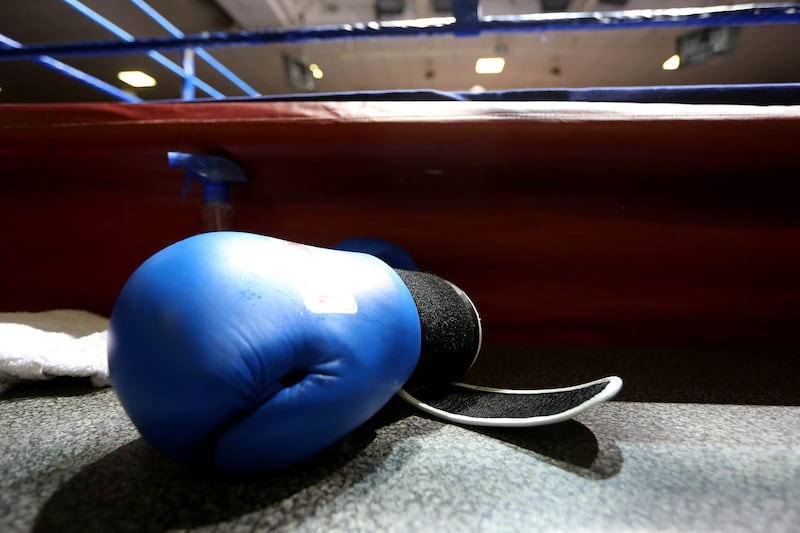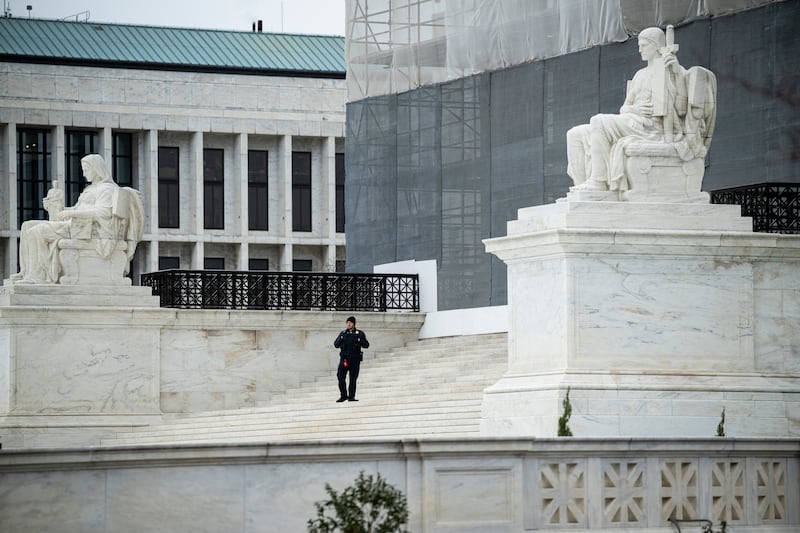This is usually the point at which any Monaghan bandwagon starts to creak and groan and chug its last. In their best years in the All-Ireland series, they have tended to be the little engine that could, right until it becomes obvious they can’t. There’s no big mystery as to when they arrive at that point, either – it’s generally when they come face to face with a Division One team in Croke Park.
In 2005, Monaghan played their first championship match in Croke Park for 27 years, a double-scores whipping by Tyrone. It was only their sixth championship game at HQ since 1930, including a replay against Kerry in 1985. They have become far more regular visitors since but their record is reliably dire, a between-the-eyes summing up of their place in the scheme of things.
Over the past two decades, Monaghan have played 15 championship matches in Croker and lost 11. Those defeats have come against Tyrone (five times), Dublin (three), Kerry (twice) and Kildare (once). Of the remainder, they’ve beaten Kildare twice and Down once in normal time, as well as a memorable penalty shoot-out win over Armagh two summers ago.
If you drill down into the victories, Down were a Division Two team when Monaghan beat them in 2017. And though Armagh (2023) and Kildare (in 2014 and 2018) had played in Division One earlier in the season, they’d all been relegated at the end of their respective league campaigns. Of the four, only Armagh were considered as possible All-Ireland contenders – and even then, they were down the list behind Kerry, Dublin, Derry and Tyrone.
READ MORE
The point is, Donegal are favourites for the 2025 All-Ireland. Monaghan don’t beat the favourites for the All-Ireland. They don’t ever beat serious contenders for the All-Ireland, not in Croke Park and not in the All-Ireland series. History tells us that this is where they come unstuck. So why should this year be any different?
On the face of it, it shouldn’t. Donegal have beaten Monaghan already this summer and haven’t lost a championship game against them since the 2015 Ulster final. They’ve won the last three clashes between the counties and drew the one before it, making this the longest unbeaten Donegal stretch in the fixture since the counties first met in 1929.
But dig a little deeper and you’ll find that games between these two have always found room for an upset. Even when Donegal were a bit of a rabble in the summer of 2023, they were still able to pull off the biggest win of their year with a two-point victory over Monaghan in Omagh. That result was in keeping with tradition – time and again, matches between these sides have been won by the unfancied team. For Donegal 2023, read Monaghan 2013. And Monaghan 1995. And Donegal 1983.
If you go through the games Monaghan have lost in Croke Park over the past 20 years, they have been against sides that they have no tradition of beating. Tyrone have been their bogey team for a generation now – they’ve never beaten them outside of the Ulster championship. As for Kerry and Dublin, Monaghan have never won a game against either of them in championship football.

In the GAA, everyone has a mental block about somebody. It doesn’t make sense but it’s undeniably true. And it means that Monaghan supporters will travel in much more hope and confidence this weekend to face Donegal (top of the betting for Sam Maguire) than they would if they were facing Tyrone (sixth), Dublin (fifth) or Kerry (fourth). Don’t ask for the science, just accept the facts.
Away from that sort of specious juju though, Monaghan carry a threat that is specific to this particular championship. In Gabriel Bannigan’s first year in charge, they have taken to the new rules in an eye-catching way, embracing the possibilities offered by two-pointers and backing their hard-running style in one-on-one situations around the arc.
Back in the spring, they were the top scorers in the league across all the divisions, averaging a shade over 1-24 a game. They have kept that number steady throughout the championship, putting up 4-96 in four matches. Only Down scored more than them in the group stage, with Armagh a full three points-per-game further back in third.
There are caveats aplenty, of course. Monaghan ran up all their gaudy totals in Division Two of the league, which showed itself to be an outlier in terms of scoring. Of the 10 highest-scoring teams in the 2025 league, seven were in Division Two. Westmeath and Down got relegated from the second flight despite being the joint third-highest scorers in the country. Division Two was a high roller event this year and everybody played fast and loose.
And though the average of Monaghan’s totals hasn’t dropped in the championship overall, the numbers don’t tell you everything. All three group matches were against teams from Division Two and Three. In their only match all year against a Division One side, they scored just 0-21 against Donegal in Clones in April.
That match was a ruthless depiction of the difference between the elite teams and the rest. Jim McGuinness’s side put on a masterclass of scrubbing the opposition’s strengths and making them find a different way to try to compete.
Rory Beggan had been Monaghan’s leading scorer in the league, filling his boots from two-point frees. So Donegal simply took that option away – they didn’t concede a single kickable free to Beggan all day. No fouls outside the arc, no three-up breaches, no dissent. The Monaghan goalkeeper got to take just a single kick at goal all day, a first half 45 conceded by Shaun Patton when he turned a goal chance from Ryan McAnespie around the post.
Monaghan stayed in that game by kicking two-pointers from play, five in all. But even that was a lower total than they needed – they tried for 12 two-pointers and missed seven. By contrast, Donegal only attempted a couple of two-pointers in the course of the game and landed them both. McGuinness’s players didn’t drop a single kick into Beggan’s hands all day. Their shooting return was 76 per cent; Monaghan’s was 57 per cent.

That’s the difference. Monaghan’s season so far has looked impressive at first glance but it has been built on games against lesser opposition. Clare and Down led them at half-time before Bannigan’s side wrested control as the game progressed. In both games, they were helped by their opposition’s wastefulness in front of goal. It seems unlikely that Donegal will be quite so obliging.
And yet, there’s no doubt Monaghan come to Croke Park this weekend with a genuine chance. Andy Moran’s fingerprints are all over the way they attack. In the likes of Beggan, Dessie Ward, Micheál Bannigan, Jack McCarron and Conor McCarthy, they have a consistent two-point threat from a range of different angles and scenarios. That threat forces defences to come further out to meet them, leaving space for Bannigan, McAnespie and the elusive Stephen O’Hanlon to take on their men one-on-one.
More than any other factor, the new dawn brought on by the rule changes have changed Monaghan’s expectations here. All those years over the past two decades when they came to Croke Park to play a big Division One team, they were bound by their desire to keep everything tight. Their best chance was always to try to sit in and hold on, to give themselves a chance down the stretch.
It worked against Armagh in 2023, albeit after penalties. But the limits of that approach were shown a fortnight later in the All-Ireland semi-final when they matched strides with Dublin all the way to the hour mark before eventually falling to a seven-point defeat. It was a slow death, the latest in a long line.
Whatever happens against Donegal, it won’t be that. Monaghan have gone about the new game like a backpacker taking on a new identity in a foreign country. Who they were and what they did in the old game is irrelevant, for now at least.
They know they can only win by going for broke. They are conceding big totals but on the flipside, they are taking a huge amount of shots. If they find the accuracy to go with their sense of adventure, they could finally smash through the glass ceiling.
After 20 years of trying to beat a big team in Croke Park, this is as good a chance as they could hope for.
If not now, when?





















